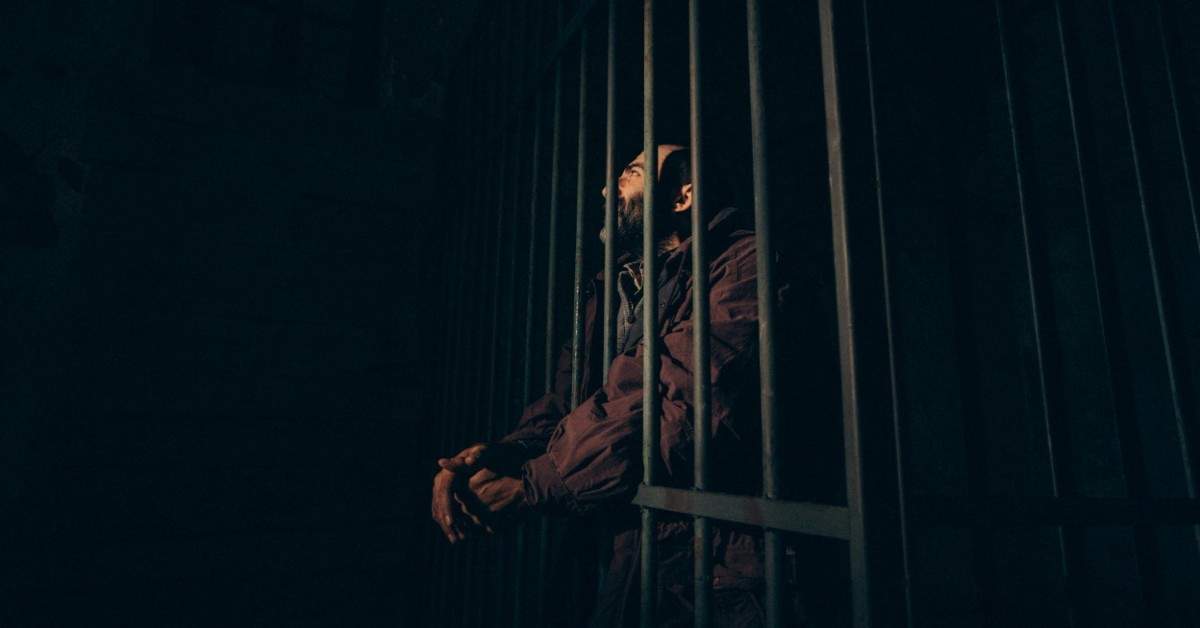Every year, on October 10, the World Day against the Death Penalty serves as a powerful reminder of the global movement striving to abolish capital punishment. This day unifies abolitionists worldwide, mobilizing various sectors of society—including civil society, political leaders, and legal professionals—to advocate for the universal abolition of the death penalty. The theme for 2024 and 2025 challenges the misconception that the death penalty enhances safety and security for individuals and communities.
Must-Watch: Top 5 Bold Lessons to Live By from ‘Mother Mary Comes to Me’!
The Essence of Security: Rethinking Safety
- Understanding Security: Security is commonly interpreted as the freedom from danger or threat, yet its definition can vary significantly across different contexts. In political discourse, the term is often wielded to sway public opinion and justify controversial policies.
- Political Implications: Who constitutes a “threat” and who should be “protected” is frequently dictated by power dynamics, discrimination, and social inequalities. When security measures are politicized, they compromise the integrity of the judicial system, turning it into a tool for human rights abuses.
- Misleading Arguments: The World Day against the Death Penalty aims to debunk the notion that executing individuals for crimes effectively protects society. In reality, the death penalty undermines human dignity and exacerbates existing social disparities, particularly impacting marginalized communities disproportionately.
The Case Against the Death Penalty
Human Dignity and Social Disparities
- A Threat to Dignity: Capital punishment fundamentally contradicts the notion of human dignity. It raises ethical questions about the state’s right to take a life, often leading to irrevocable consequences when judicial errors occur.
- Marginalized Communities: The death penalty disproportionately affects marginalized groups, further entrenching societal inequalities. Those with lower socio-economic status or racial minorities are more likely to receive harsher sentences, highlighting systemic biases in the legal system.
Root Causes of Crime
- Addressing Underlying Issues: To foster genuine safety, we must address the root causes of crime and violence rather than resorting to punitive measures. A human security approach emphasizes understanding the socio-economic factors that contribute to criminal behavior.
- Effective Long-term Solutions: Shifting focus from punishment to prevention and rehabilitation can create safer societies. Community support, education, and economic opportunities are crucial in preventing crime and fostering resilience.
Current Global Landscape of the Death Penalty
Statistics and Trends
- Global Abolition Movement: As of now, 112 countries have abolished the death penalty for all crimes, while an additional 9 have abolished it for common law crimes. However, 55 countries still retain it.
- Retentionist States: Among the five states that executed the most individuals in 2023 are China, Iran, Saudi Arabia, Somalia, and the USA.
- Individuals on Death Row: At the end of 2023, it is estimated that over 27,687 individuals were sentenced to death globally, with women representing less than 5% of that figure.

Engaging the Community: Taking Action
The World Day against the Death Penalty invites everyone—individuals, NGOs, educators, lawyers, and citizens—to participate in initiatives advocating for abolition. Whether through debates, concerts, or educational activities, community engagement is vital to raising awareness and mobilizing support against capital punishment.
Call to Action: Participate in Global Initiatives
- Join the Movement: On October 10, 2024, various activities and events will take place worldwide, demonstrating solidarity against the death penalty. The World Coalition encourages participation in these initiatives.
- Impactful Initiatives: In 2023 alone, 57 countries engaged in activities promoting the abolition of the death penalty. Events such as press conferences, demonstrations, and educational programs play a crucial role in galvanizing public support.
Planning Your Contribution
- Organize Events: If you plan to contribute to the World Day against the Death Penalty, consider organizing events in your community.
- Share Your Plans: Inform the World Coalition about your events scheduled for October 10, 2024, to amplify the collective effort in advocating for abolition.
Click Here: 7 Must-Know Walkie-Talkie Facts
Conclusion: A Collective Responsibility
The World Day against the Death Penalty serves as a powerful platform for voices advocating for justice, human dignity, and the abolition of capital punishment. It reminds us that the fight against the death penalty is not just a legal issue but a moral one that requires the commitment of everyone—regardless of their background or expertise.
By addressing the root causes of crime, emphasizing human dignity, and mobilizing communities, we can work towards a world where the death penalty is abolished, and justice is served through humane and equitable means.
Join the movement, take action, and stand firm against the death penalty—because together, we can create safer societies without sacrificing humanity.
Additional Resources
For more information, resources, and materials related to the World Day against the Death Penalty, please visit the following:
- Leaflets and Fact Sheets: Find detailed insights and statistics regarding the death penalty and its impact on society.
- Multilingual Posters: Available in various languages to raise awareness in diverse communities.
Click Here: You Won’t Believe What Blueberries Can Do for You
Final Thoughts
Participating in the World Day against the Death Penalty is an opportunity to advocate for a future where justice is characterized by compassion, equality, and human rights. Every action, no matter how small, contributes to a larger movement aimed at abolishing the death penalty worldwide. Let’s work together to make a difference!
FAQs
What is the theme of the World Day against the Death Penalty?
The theme for the World Day Against the Death Penalty 2024 is “The Death Penalty Protects No One.” This theme emphasizes that the death penalty fails to serve justice or protect society, and calls for global efforts to abolish it.
What is the death penalty day 10 October?
October 10 is observed as the World Day Against the Death Penalty, a day dedicated to raising awareness about the inhumanity of capital punishment and advocating for its worldwide abolition.
What does the UN say about the death penalty?
The United Nations advocates for the global abolition of the death penalty, stating it violates the right to life and constitutes cruel, inhumane, and degrading treatment. The UN General Assembly has repeatedly called for a moratorium on executions, with the ultimate goal of ending capital punishment.
What is the moral of the death penalty?
The moral argument against the death penalty centers on the sanctity of human life. Critics argue that taking a life, even as punishment for a crime, diminishes society’s moral standing and can lead to irrevocable miscarriages of justice.
What is the concept of death penalty?
The death penalty, also known as capital punishment, is a legal process where a person is sentenced to death by the state as punishment for a crime, typically serious offenses like murder or treason. It involves executing the convicted individual.
What is the meaning of death penalty day?
World Day Against the Death Penalty, observed on October 10, is a global initiative to raise awareness about the death penalty’s consequences and promote its abolition worldwide.
What is the main argument against the death penalty?
The primary argument against the death penalty is the risk of executing innocent people, the lack of evidence that it deters crime, its discriminatory application, and the violation of human rights, especially the right to life.
What are the 5 death penalties?
Common methods of execution in countries that practice the death penalty include:
- Lethal injection
- Hanging
- Firing squad
- Electrocution
- Gas chamber
Who gives the death penalty in India?
In India, the Supreme Court and the High Courts have the authority to sentence individuals to death. However, the President of India holds the power to pardon or commute death sentences under Article 72 of the Constitution.
Why does India have the death penalty?
India retains the death penalty for “the rarest of rare cases,” involving heinous crimes like terrorism and murder, with the justification of deterring severe offenses and delivering justice in extreme cases.
How many death penalties in India per year?
On average, India has around 80 to 100 death sentences awarded per year, though the actual number of executions is much lower due to appeals and commutations. The last execution took place in 2020.
What is meant by the penalty of death?
The penalty of death refers to capital punishment, where an individual is legally sentenced to death for committing a serious crime.
What is another meaning of death penalty?
Another term for the death penalty is capital punishment, referring to the execution of a person by the state for a crime.
Death penalty protests
Death penalty protests are movements or demonstrations by activists, organizations, and citizens against the use of capital punishment, often calling for its abolition due to ethical, legal, or humanitarian reasons.
World Coalition Against the Death Penalty
The World Coalition Against the Death Penalty is an alliance of NGOs, bar associations, unions, and local governments that work together to promote the abolition of the death penalty worldwide.
10 reasons to support the death penalty
Supporters of the death penalty often cite reasons such as deterrence of crime, retribution for victims, closure for families, prevention of recidivism, and justice for heinous acts. However, these are widely debated and contested.
Death penalty organization
Organizations like Amnesty International, Reprieve, and The Innocence Project actively campaign against the death penalty, while others advocate for its reform or retention.
Anti-death penalty organizations
Prominent anti-death penalty organizations include Amnesty International, Death Penalty Information Center, Reprieve, and Witness to Innocence, which work to end capital punishment globally.
Death penalty conference
Death penalty conferences are held by various human rights organizations, legal groups, and international bodies to discuss the global status of capital punishment, legal reforms, and strategies for abolition. These conferences aim to foster dialogue and action against the death penalty.

